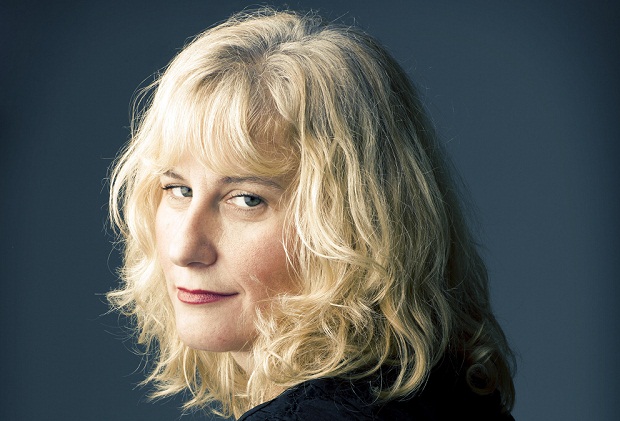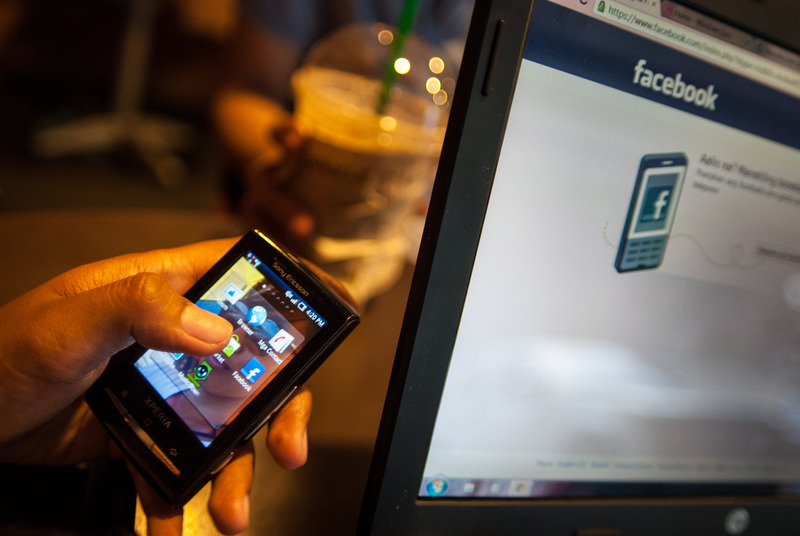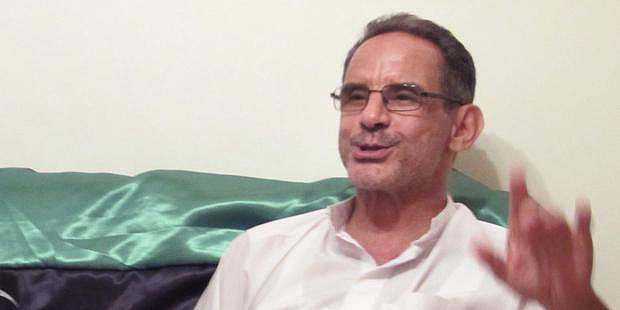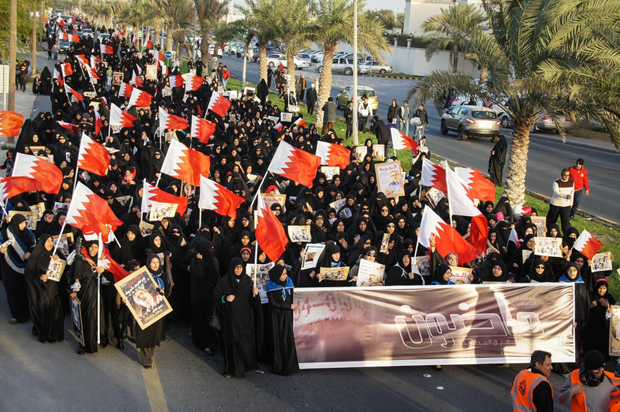Meltem Arikan: “We were prevented from expressing ourselves freely”

This is the third part of a series of conversations with Turkish playwright and author Meltem Arikan about her play Mi Minor and her experiences during the Gezi Park demonstrations.
Julian Farrington, head of arts programmes at Index on Censorship spoke to Arikan about how this government-orchestrated terror campaign was to change her life.
On 2 June Arikan – with her friends Pinar Ogun, Memet Ali Alabora and Melin Edomwonyi — struggled through the massive crowds of demonstrators on the streets of Istanbul, reaching her home around two in the afternoon. The peaceful Gezi Park demonstrations had turned violent.
There had been clashes between the protesters and the police during the night. The previous day they had been among a group of artists who they had gathered together to broadcast a message to the governor from Taksim Square. They called for him to end the excessive police response and use of tear gas on peaceful protesters.
On the evening of 2 June, the Turkish authorities would start naming and blaming in an attempt to explain this eruption of anti-government protest. As the finger pointing evolved into a hate campaign, Arikan and the artistic team behind her play Mi Minor were among those targeted.
Index: How long after the play finished did the Gezi Park protests start?
Arikan: Mi Minor was staged in Istanbul from 1 December 2012 to 14 April 2013. The play was performed 23 times, more than 10,000 people attended. Gezi Park protests started on 27 May.
Index: What was the reaction to the play?
Arikan: Mainstream media showed great interest in Mi Minor. Before and during the performances Memet Ali Alabora, director and lead actor, and Pinar Ogun, the lead actress, were interviewed and hosted by nearly all major TV channels, newspapers and magazines. After only 5 performances, Mi Minor was named Radikal Newspaper’s Best Play of the Year by readers.
At first the audience was not interacting much with the play. The first remarkable reaction was a woman throwing her shoe at the Pinima president. However, when young people started joining and interacting with the play, the perception of the overall audience and their involvement changed. When young people figured out that there was more than one game to be played in our play, they started responding to Mi Minor in such smart, humorous and joyful ways.
We also had great responses on social media all around Turkey as well as other countries — Netherlands, France, USA, Canada, Egypt, Australia and more. The play became a trending topic four times during the performances in Turkey.
In time, we started to have fans who would come to the play or join online every week and plan their own little games. For example one of the digital actors abroad came up with the idea of Pinileaks on the internet during each performance about the Pinima president. A group of online audience members, who were following the play online, got organised and came to Istanbul. There were also friends who got very excited about the play and came from abroad to see it. The play had the Marmite effect: Some loved it. some hated it. There have been many reviews about the play by Turkish and international critics, including Liberté info, Paulanow and Archetypeinaction.
Index: Were there any other awards or plaudits?
Arikan: Students of Galatasaray University awarded Memet Ali Alabora as best actor. Pinar Ogun was nominated for best actress. I was nominated for the best playwright in the Lions Theatre Awards. The play was named the Best Play of the Year by the Karvak Awards, which we refused to receive as I mentioned in the previous article.
Index: Did the government make any comments or have any reaction to it?
Arikan: There weren’t any comments or reactions from the government during the period when the play was being performed.
Index: I know you were uneasy about how it might be received by authorities. How did you feel it went?
Arikan: We took a great deal of care to make sure that our made-up country Pinima didn’t relate to any specific government, including Turkey. I observed that some of the audience felt uncomfortable when the Pianist was taking their pictures or interviewing them on Ustream. I believe this is mostly because people were afraid to be seen as opposing power, even though Pinima was a fictional country. After each performance many people said to us that we were very brave and asked us to be careful.
Index: So now, let’s go to the moment on June 2 when you got back to your house after the artists made the statement condemning police violence. What was your mood when you closed your front door?
Arikan: We were tired, angry and confused when we got home. I can say that we got more worried as the events got more violent. It was so painful to see young people lose their lives knowing it all started off to protect trees. We were trying to keep our nerves together as we followed the events on Twitter.
Index: When was the first time you heard that you and your friends were being named as the architects of the Gezi Park uprising?
Arikan: On 1 June, the first accusation was made against my close friend and the director of Mi Minor, Memet Ali Alabora, by members of the ruling party, claiming that Gezi protests were attempts to establish the grounds for a coup and his tweet, which would become so famous, was shown as evidence:
“It’s not just a matter of Gezi Park, haven’t you realised yet? Come join. #resistgezipark”
It was shocking to see how politicians could show such a simple tweet as an evidence for such a huge claim. All Memet Ali did was to attend the protests during the first three days and use twitter to express himself. It was hard to believe how he was being singled out and targeted.
As I said in the previous article, I tried to explain what happened in the first three days of Gezi Park protests. From the second night onwards, the protest that started about trees attracted thousands of people who were coming to the park to give voice to a whole range of issues that they were concerned about. There were political activists, environmentalists; even Turkish Airlines staff, who were out on strike at the time joined the demonstrations. And on 30 May the day Memet Ali sent his tweet, there were people holding up banners about protecting the environment, the demolition of the Emek Theatre, destruction of forests and rivers and government interference in personal lifestyles. Memet Ali’s intention was to report what he saw happening, as he stated in his press conference after the accusations of Yeni Şafak Newspaper:
“I went to Gezi Park on 28 May to protect the trees and the culture of Istanbul. After continuous police violence, the protest turned against the force used to suppress freedom of expression. People who gathered there started to express themselves on matters they were not able to express before. This was also the case for me. For me, as well as Gezi Park, I wanted to express my concerns about a whole range of issues I saw happening in the city: the demolition of Emek Theatre, the change in Istanbul City Theatre’s regulation, State Theatres that were being closed down, the green fields being destroyed on the Asian side of Istanbul, the old central station to be made a commercial building. I meant all these when I tweeted ‘it’s not just a matter of Gezi Park’.”
After 1 June, a campaign was launched by government officials, politicians, pro-government media and their social media supporters claiming that the Gezi Park protests were an international conspiracy, with links to business, arts and NGOs. Businessmen, artists, executives of many NGOs, sportsmen, journalists and many others started to be targeted as part of this conspiracy. First Memet Ali, then Mi Minor and all related to the play, were one of the main focuses of this campaign.
Memet Ali attended a news programme a couple of days later; during the programme President of AKP (Turkey’s ruling Justice and Development Party) Istanbul Party Organization almost threatened him via twitter:
“Memet Ali and his allies/friends/ will be “overturned” [referring Memet Ali’s surname “Alabora” as it literally means “overturn”], and our brotherhood will win”
On 10 June, the pro-government newspaper Yeni Şafak came out with the headline, “What A Coincidence”, accusing Mi Minor as being the rehearsal for the protests, six months in advance. The subheadline said that “New information has come to light to show that the Gezi Park protests were an attempted civil coup” and continued claiming that “the protests were rehearsed months before in the play called ‘Mi Minor’ staged in Istanbul”.
After Yeni Şafak’s headline, the mayor of Ankara, started to make programmes on TV specifically about Mi Minor, also mentioning my name. A news channel called A Haber ran a story about the graphic designer of the play, accusing her of being one of the masterminds of the social media behind the protests. They announced her full name and twitter account, giving false reports on her. She later lost her job as a consequence.
Index: The newspaper was making a direct connection between your play Mi Minor and the demonstrations. How did they justify, support this claim?
Arikan: As I mentioned before, a smear campaign had already been launched. Any news by pro-government media were built on the premise that Gezi Park protests didn’t start as protection of trees but as an international conspiracy by the secret powers and the interest lobby against the emergence of a new Turkey.
This introduction to the article in the pro-government paper Yeni Şafak’s is an example of this conviction:
“The Gezi Park protests that started off with claims about cutting trees and which suddenly grew into a campaign calling for the government to resign, with false news on social media has come into its 14th day. New information on events has revealed they were an attempt to develop into an international operation with the support of the interest lobby, and throws a new light on the supposed innocence of the Gezi Park protests. There have been precise rehearsals of the Gezi events in the play ‘Mi Minor’ which was staged between 1st of December 2012 – 14th of April 2013.”
By projecting Memet Ali as someone “who has drawn attention with his provocative public tweets ever since the first day of the protests”, the newspaper tried to link his popular tweet with the play. In Mi Minor we used gourds in our fictional country Pinima, as a nonsensical export which was supposed to drive the economy. We were very cautious when choosing the symbols used in the play in order to create a unique country. Referring to the AKP’s use of a light bulb as their party symbol, the newspaper claimed that we were “targeting AK Party by using symbols that resemble the AKP symbol”. They presented the unique theatre style of Mi Minor as training for young people, teaching, “how people should revolt and how they can organise their revolution on social media”.
For the newspaper, Memet Ali’s participation in the protests, the gourds, the way social media was used in both the play and the protests, the portrayal of a dictator president in the play and the opportunity that the play gave for the audience to oppose to the President was enough to justify its attack.
“The play “Mi Minor” proves that the Gezi Park protests, which was turned into a campaign to overthrow the government, were being staged on another medium before the actual protests started.”
Index: They claimed that you were part of a conspiracy, funded by foreign governments – can you tell us more about this?
Arikan: Once the premise of the conspiracy was established, any figure who somehow participated in the protests would always be linked to it, and thus to the foreign governments. On one of his programs the mayor of Ankara claimed, without proof, that Mi Minor was funded from abroad.
Ten days after their news on Mi Minor, Yeni Şafak featured another story, presenting Memet Ali’s holiday visits to the Red Sea and London as if they were preparations for Gezi protests. On various TV programs, websites and online forums Mi Minor or my name were being linked to secret international powers. Presentations were made to district organisations of the AK ruling party, explaining how Mi Minor was part of the international conspiracy.
There were so many groundless accusations that it is impossible to remember them all.
Index: You decided to lie low and stay in the house. What was it like in the house? Who was there? What was the atmosphere?
Arikan: Even now, I don’t want to remember what I went through during those days. We were extremely distressed. We were receiving hundreds of threats and accusations almost every minute via social media. We found it really difficult to believe what we were reading when we saw the news about Mi Minor. Even though most of the media covered Memet Ali’s press conference, it didn’t stop the accusations. The accusations were then carried on to TV. Mi Minor was being discussed on various TV channels at least twice a week. Pinar and I started to use anti-depressant pills during this period because it was impossible to understand and cope with what was going on. I wasn’t just worried for myself but also for the people I love.
Index: The protests continued until long after you closed your front door. Did the police make any arrests in the days following the protests? Given what was being written about you, did you expect they would arrest you?
Arikan: There were ongoing arrests at the time. We were prepared for every possibility. We knew it was also possible we would be arrested. It was nerve wracking to live with such uncertainty. There were continuous threats and accusations. All this was happening because I created a play and attended a peaceful protest to protect trees.
Sadly, this was just a beginning for us. While the demonstrations were happening at Taksim and Gezi Park, the prime minister held several rallies. During his speeches at two consecutive rallies in Ankara and Istanbul, he read Memet Ali’s tweet to his supporters and made the crowd boo Memet Ali. Pinar and I were watching the prime minister’s speech live on TV. Pinar was shaking with fear and shock, she was repeatedly asking “why?” We were not sleeping. We were not talking with anyone outside the house or on the phone.
Several complaints were submitted to the prosecutors about Memet Ali. They sued him for encouraging a crime showing his tweet as evidence. Prosecutors eventually dropped all charges, though the last one was only dropped in January 2014.
It wasn’t the arrests we were afraid of. We feared for our lives. The days were hard to follow. We lost track of time. We were numb, timeless, sleepless and speechless. I don’t like to remember those days we had to spend at home.
Index: After a while of this attack on Memet Ali and others, the mayor of Ankara launched his personal campaign against you. Why do you think he got so heated? Was there a particular political motive for his attacks?
Arikan: My nervous system had already been broken by the time I saw that one of the many programs on Mi Minor was now focusing on me. They were showing an edited version of one of my speeches that I made six years ago about secularism. It was edited in such a way that I came across as an anti-Muslim agitator. What I found so brutal about this was the fact that they were using religion to provoke people against me. Religion has always been one of the most sensitive subjects in Turkey. What upset me most was the fear I witnessed in my son’s eyes and the anxiety that my partner was living through.
I find it dreadful for a politician to be able to play with people’s lives so easily. I don’t know what his political motive was. But I do know very well that these motivations do not include any humanitarian sensibility or responsibility. In responses to all these accusations, I wrote a confession for my column in Kazete, which was subsequently shared on many websites and through social media.
“I’M GUILTY I CONFESS
I’m guilty; as a woman writer, for years I’ve been rejecting the male dominated system and for the last couple of years I’ve been trying to understand and express what’s been happening during the transition period from the analogue world to the digital world.
I confess; two and a half years ago, using my intellect and my imagination, I wrote a play called “Mi Minor”. Our play was performed 23 times in 3 different venues with the permission of Governorship of Istanbul for each venue. My imagination fails me when I try to understand those who accuse us of rehearsing the Gezi Park events before it has started, provoking all that is currently happening in our country; linking us to various foreign organizations and part of an fantastical conspiracy theory relating to all these lies – even though they haven’t seen our play.
I’m guilty; I know that for thousands of years the culture of fear has been creating ‘the other’ through race and religious differences and has been making up rational reasons for wars by imposing hate and violence. I say ENOUGH to the analogue world order imposed by the male dominated system based on culture of fear, which is the one and only common culture of all societies in the world and which has been forced upon all societies, for thousands of years.
I confess; culture shall not be attributed to any society or any race. Culture is formed through the results of women and men’s existence(s) affecting each other and their interactions with nature. When defining cultural differences, the analogue world order has always disregarded the differences between men and women’s lives, which forms the foundation of all cultures. It’s women and men that create cultures and civilizations. It is a big mistake to restrict the parameters of cultural formation just with race, religion, geography and traditions, seperated from the existence of women and men.
I believe the new digital order will be constructed by accepting that societies are formed by women and men without prioritising race, religion, language and sexual differences.
I’m guilty; I believe in freedom of thought and freedom of expression by getting away from the pressures of all ideologies, political statements, military or civilian coups.
I confess; I want to think and live freely by moving away from the thought patterns that have been imposed by the patriarchal system for thousands of years.
I’m guilty; I know that the only reason of running away from reality, deflecting reality, creating ‘the other’ is fear.
I confess; I will not be frightened and to become ‘the other’.”
Index: Can you describe the nature of the campaign and how it was manipulating the public?
Arikan: On YouTube everyday different users uploaded the video made about me, which was presented by the mayor of Ankara on his son’s TV channel. Discussions and comments about me started to be made on digital forums and blogs during his campaign, referencing the banning of my book in 2004. I received hundreds of rape and life threatening emails and tweets as a result of this campaign.
Index: At what point did you start getting frightened for your safety?
Arikan: I started to get really angry because — as a woman writer supporting secularism — I have been pointed to as a threat to Islamic faith and destructor of the Turkish family order, over and over on TV and social media. Such accusations against any woman, is a threat on her life. However, I was never frightened for losing my own life, I still stand for everything I said, my fear was firstly for the security of my son and the people I love.
On 24 June newspapers carried very frightening news. A Islamist journalist claimed that he had heard that there was a contract out to kill Memet Ali. He didn’t mention any names or any organisations. This was when we really started to worry about our lives.
Index: From 1 June until the time you left the country, you did not feel safe to go out and for the most part, friends brought food and things you needed. But you did go out once. What happened?
Arikan: Pinar and I had to go to the bank one day, since the bank is very close to where we live, we didn’t see any harm in driving there. But when we came back out from the bank we found the words “YOU ARE DEAD” written on the car. This of course upset us all very much. And just a few days after, I saw that mayor of Ankara’s son was tweeting about me for hours.
The selected sentences he chose to tweet about were all excerpts from my research publication called ‘The Body Knows’. He was clearly provoking people against me with false accusations and manipulating what I had written. Those tweets were the last straw.
I realised that we were surrounded, imprisoned in our own home and prevented from expressing ourselves freely.
I decided to leave to build a new life with my son, leaving everything else behind in order to express my thoughts freely.
This article was posted on February 11 2014 at indexoncensorship.org



